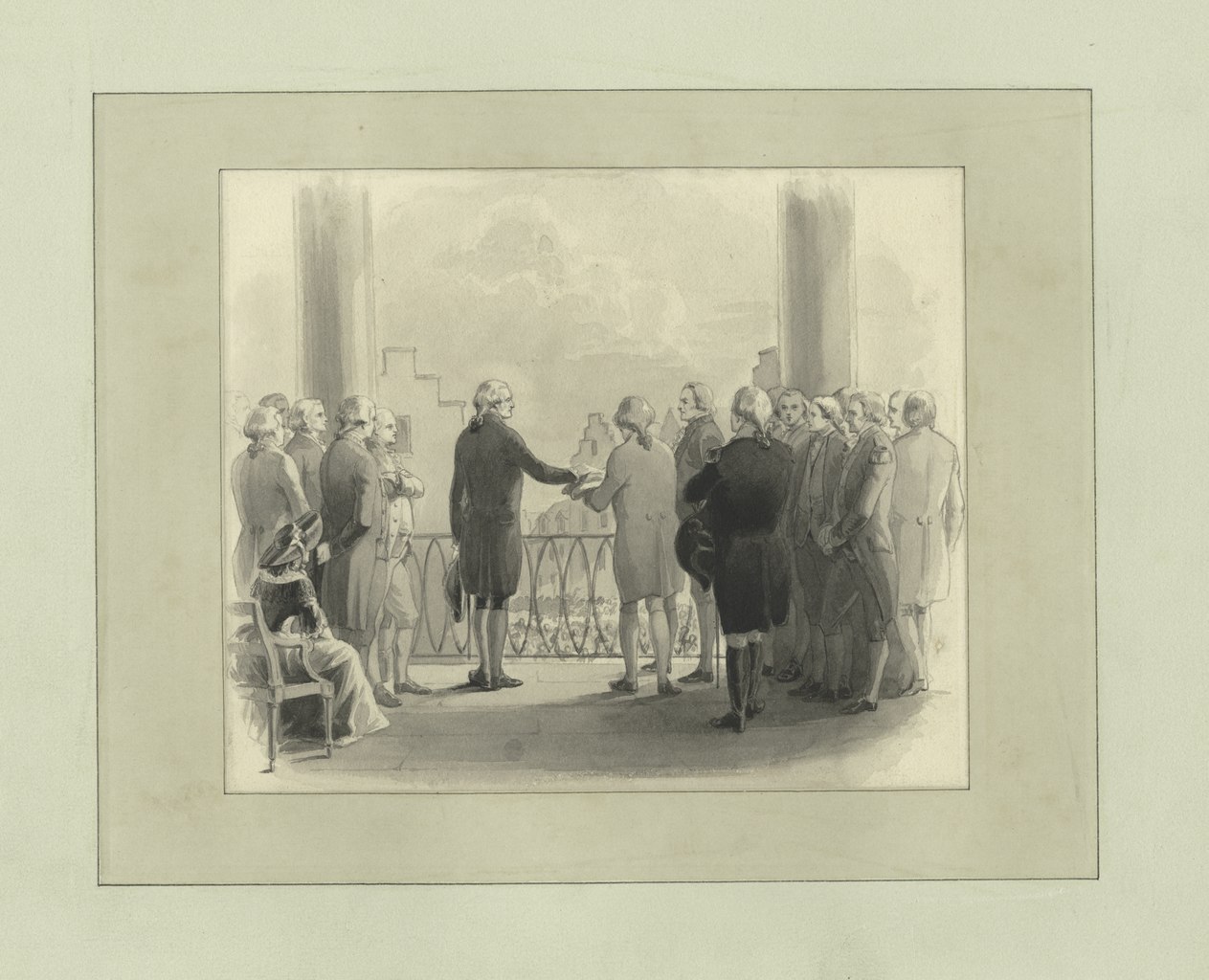In this Cornerstone Forum series we asked authors to consider the relevance and challenges of the “No Religious Test” clause in today’s religious, cultural and political climate.
“Washington swearing the oath of office,” Source: New York Public Library’s Digital Collection.
The Constitution of the United States provides that “no religious Test shall ever be required as a Qualification to any Office or public Trust under the United States.” During the ratification debates, a framer of the Constitution explained that this clause prohibits examination of “one’s belief of certain doctrines…for the purpose of determining whether his religious opinions are such, that he is admissible to a publick office.” Last year, this provision, known as the No Religious Test Clause, became part of the public discourse when Senator Bernie Sanders (D-VT) announced that he would vote against the confirmation of a Christian presidential nominee because of his belief that Muslims “have a deficient theology.” In response to criticism, Sanders said that he was merely questioning whether the nominee’s beliefs would prevent him from being fair. A few months later, Senator Dianne Feinstein (D-CA) questioned the fitness of Amy Barrett for a federal judgeship because “the dogma lives loudly” within her. Feinstein argued that she had legitimately questioned whether the nominee would be able to apply law that contradicted her beliefs. And in 2015, presidential candidate Ben Carson said he was opposed to the idea of a Muslim president because Islam is “inconsistent with the values and principles of America.”
In what ways has the No Religious Test harmed or benefitted our nation and federal government? To what extent do these recent cases reflect a growing discomfort in some quarters with public life being influenced by people who consider themselves bound to follow the teachings of their faith? How much of a factor is it that the religious beliefs of some leaders and potential leaders purport to be true to the exclusion of other beliefs? In the context of a society that faces deep political, cultural, and religious divides, what is the importance and relevance today of a “no religious test for public office” clause within the Constitution?
THE RFI BLOG

Is Egypt’s Government Trying To Take Over Christianity’s Most Important Monastery?

Does Southeast Asia Lead the World in Human Flourishing?

RFI Leads Training Session on Religious Freedom Law and Policy for U.S. Army War College

Oral Argument in Charter School Case Highlights Unconstitutional Motives Behind OK Attorney General’s Establishment Clause Claim

Largest Longitudinal Study of Human Flourishing Ever Shows Religion’s Importance
CORNERSTONE FORUM

Reaffirming Religious Freedom: Bridging U.S. Advocacy and Iraq’s Constitutional Framework

Political Polarization, Same-Sex Marriage and Religious Liberty

Bridging the Gap Between International Efforts and Local Realities: Advancing Religious Freedom in the MENA Region

Challenges to Religious Freedom in Iraq and the Critical Need for Action





